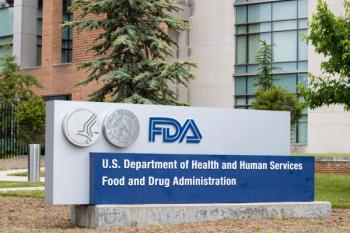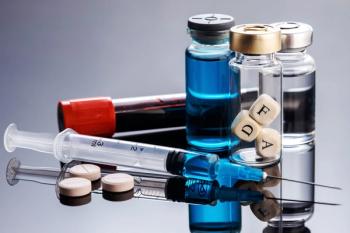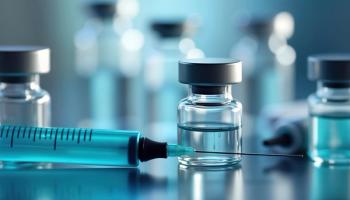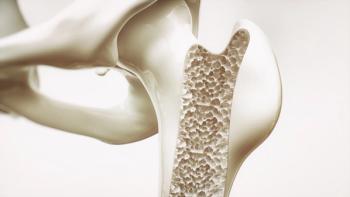
The Holy Grail Search for Affordable Insulin: The Quest Continues
The Inflation Reduction Act puts a $35 cap on monthly out-of-pocket expenses for insulin. The catch: It applies only to people covered by Medicare. Some states, including California, and Civica Rx, the generic drugmaker, are gearing up to make biosimilar versions of brand-name insulin products. The competition could drive down prices.
Insulin prices, once only known to patients, families and a few insiders, have entered the political arena in a big way and are not going to leave any time soon.
A $35 cap on monthly out-of-pocket expenditures for insulin is a signature part of the Inflation Reduction Act that President Joe Biden signed on this week and a talking point that Democratic supports of the legislation believe will serve them well.
But the cap only applies to people covered by Medicare. Many advocacy groups, patients and their clinicians see the measure as half a loaf for insulin affordability: a good deal better than nothing but only partial.
“The removal of the $35 per month cap for commercial plans by the Senate leaves millions of Americans, including more than 1.6 million people with type 1 diabetes, facing inflated prices of a drug they need every day to stay alive,” said JDRF, a research and advocacy organization for Type 1 diabetes, which used to be referred to as juvenile diabetes. The organization heaped blame on the Senate because a legislative maneuver in the upper house that would extended to the cap to commercial plans failed.
Before insulin cap for Medicare beneficiaries was subsumed into the Inflation Reduction Act, it was one of the main features of
In the meantime, there have been assorted effort to put cheaper insulin into the hands by manufacturing and marketing biosimilars. Whether those efforts will lose steam if the cap for Medicare beneficiaries gets extended to those with private insurance remains to be seen.
California has firmed up plans to manufacture its own insulin biosimilar by earmarking $100.7 million for the purpose in its 2023-2024 budget. The plan includes construction of a biosimilar manufacturing plant. It’s possible California may license an existing FDA-approved biosimilar, otherwise it could take up to nine years to develop a biosimilar insulin, according to industry estimates. Regulatory review and legal opposition from reference product companies could add to that time.
California “has the potential to become a producer of last resort, remedying drug shortages and addressing what researchers have described as oligopolistic market structures and other market failures that plague the pharmaceutical industry,” state officials explained in a project brief.
Maine and Michigan are also investigating becoming insulin manufacturers, according to the FDA.
And in March, various payers, including Blue Cross of California and Kaiser Permanente, announced they were joining an initiative by the nonprofit Civica to manufacture insulin biosimilars. Civica aims to ensure that through this production patient costs for insulin do not exceed $30 per vial or $55 for a box of 5 prefilled pens. Intermountain Healthcare, a healthcare system headquartered in Salt Lake City, and Trinity Health, a Catholic healthcare system headquartered in Livonia, Michigan, are participating in Civica’s efforts
The three biggest manufacturers in the U.S. insulin market are Eli Lilly, Novo Nordisk, and Sanofi. They have been accused of monopolizing sales of insulin products and gouging patients. The issue is politically charged, as 37.3 million Americans, or 11.3% of the population, have diabetes, according to the CDC. Many Americans believe that prescription drug prices are too high. A 2019 study by Data for Progress said 44% of all voters “strongly support” allowing governments to produce their own copycat prescription drugs if the price is too high.
Part of the rebuttal from Lilly, Novo Nordisk, and Sanofi has been that the rebates they pay to insurers — and prescription benefit managers, more specifically —are a big part of the problem because payers do not necessarily share them with patients.
A 2020 Commonwealth Fund
A June
A number of states have instituted “safety net” programs that provide temporary relief from insulin OOP costs, but such relief will not eliminate the problems identified by the CharityRx study.
Lilly, Novo Nordisk, and Sanofi have each instituted caps on insulin costs for some patients. At the start of the pandemic, in 2020, Eli Lilly announced that it would allow anyone with commercial insurance or no insurance at all to obtain insulin for a $35 monthly copay.
Meanwhile, there are price competitive alternatives to the top brand insulins on the market. Semglee, a biosimilar to Lantus (insulin glargine; Sanofi) was rebranded and relaunched this year by Biocon Biologics/Viatris and has since made its way on to formulary as a preferred agent by Express Scripts and Prime Therapeutics, both pharmacy benefit managers. An unbranded version of Semglee was launched at a 65% discount to Lantus, based on list price.
Also, Basaglar (Lilly), which is a highly similar copy of Lantus but not officially a biosimilar, was launched in 2016 and has been credited with capturing market share and significantly reducing the cost of Lantus.
Newsletter
Get the latest industry news, event updates, and more from Managed healthcare Executive.

























